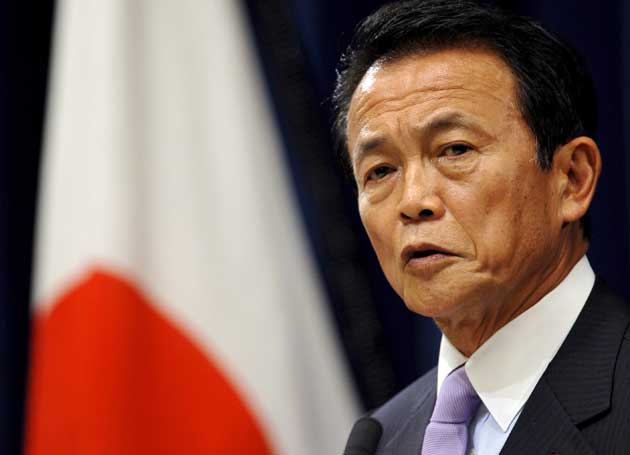Japan: time to take a punt?
Valuations are still falling, but many analysts believe long-term prospects are good.

Japan has been through a torrid time politically, appointing its fourth prime minister, Taro Aso (pictured), in less than 24 months at the end of last month. Meanwhile, the country's economy and stock market have been hit hard by the credit crunch, with the Nikkei index now back down at three-year lows, and GDP growth in reverse.
Last week, Japan's planned multi-billion-pound cash injection to pull its economy back from the brink of recession was disregarded by investors – and markets continued to fall. But, while conditions may look bleak, fund managers and analysts believe the long-term outlook for investors is starting to look much more promising.
The funding package – designed to help cope with soaring energy and food prices, and agreed by the cabinet but awaiting approval by parliament – has had a lukewarm reception from industry observers. Tony Roberts, Japanese Equities Fund manager at Invesco Perpetual, is less than impressed.
"The fact it has passed almost without comment by the investment community gives you a clue as to how irrelevant it is," he says. "The general consensus about a global slowdown is more important than a stimulus package that doesn't amount to much."
It is certainly easy to be negative on Japan, says Natasha Chetwynd, head of Japanese equities at Resolution Asset Management. The country relies heavily on exports, which have taken a battering. Not only is the amount of goods shipped to the United States and Europe down, but the numbers heading across Asia are also flagging.
"The domestic economy is pretty stable, but it's exports that have driven GDP growth for a very long time and the outlook isn't good," she says. "Construction machinery exports to China fell in August for the first time."
That's not to say the country should be dismissed. "There are a lot of very good quality companies on very cheap valuations," she adds. They can be found across a range of sectors. "One of our biggest holdings is Yamada Denki, an expanding electronic goods retailer," says Chetwynd. "It has enormous economies of scale and has managed to continue growing its profits."
The fact that Japan has such a strong presence in key markets makes investing in the country worthwhile, says Chris Taylor, whose Neptune Japan Opportunities Fund has been the sector's best performer over the past five years. "We know in which sectors the Japanese are dominant. That's where we concentrate our money," he says. "The other trick is to know which companies should be avoided in different environments," says Taylor. "As a result, I haven't had any financial or real estate companies, nor exposure to real exporters such as Toyota."
Prospects for investors in Japan have improved since the start of 2008, with blue-chip companies looking extremely cheap, says Invesco's Tony Roberts. "We started off cautiously but have recently been giving out a bullish message, saying that we can make money in Japan," he says. "Valuations are low and things will turn around."
Much depends on what happens in the coming months. "The US economy has a great track record of staging a recovery when it is least expected," says Michael Wood-Martin, manager of the Henderson Japan Capital Growth Fund. "Although it would be a brave man who says everything will be OK, I'd like to think we'll be in a slightly rosier position in 12 months' time. If so, that should help Japan."
However, Richard Urwin, head of asset allocation at BlackRock, believes the outlook is far from clear. To find Japan interesting, he suggests, an investor needs to believe that all the surprises from here on will be on the upside rather than the down. The fact that we are in a lower-growth environment makes this rather unlikely.
So where does this leave investors? Is now the time for them to be ploughing in money or is it better to sit tight? After all, Japan has been guilty of raising expectations in the past.
Darius McDermott, managing director of Chelsea Financial Services, believes Japan should only be considered for higher-risk investors. "There have been many false dawns," he says. "However, the domestic economy is OK, while the banks are much better capitalised than their global rivals and have only a small exposure to the sub-prime crisis."
Subscribe to Independent Premium to bookmark this article
Want to bookmark your favourite articles and stories to read or reference later? Start your Independent Premium subscription today.

Join our commenting forum
Join thought-provoking conversations, follow other Independent readers and see their replies